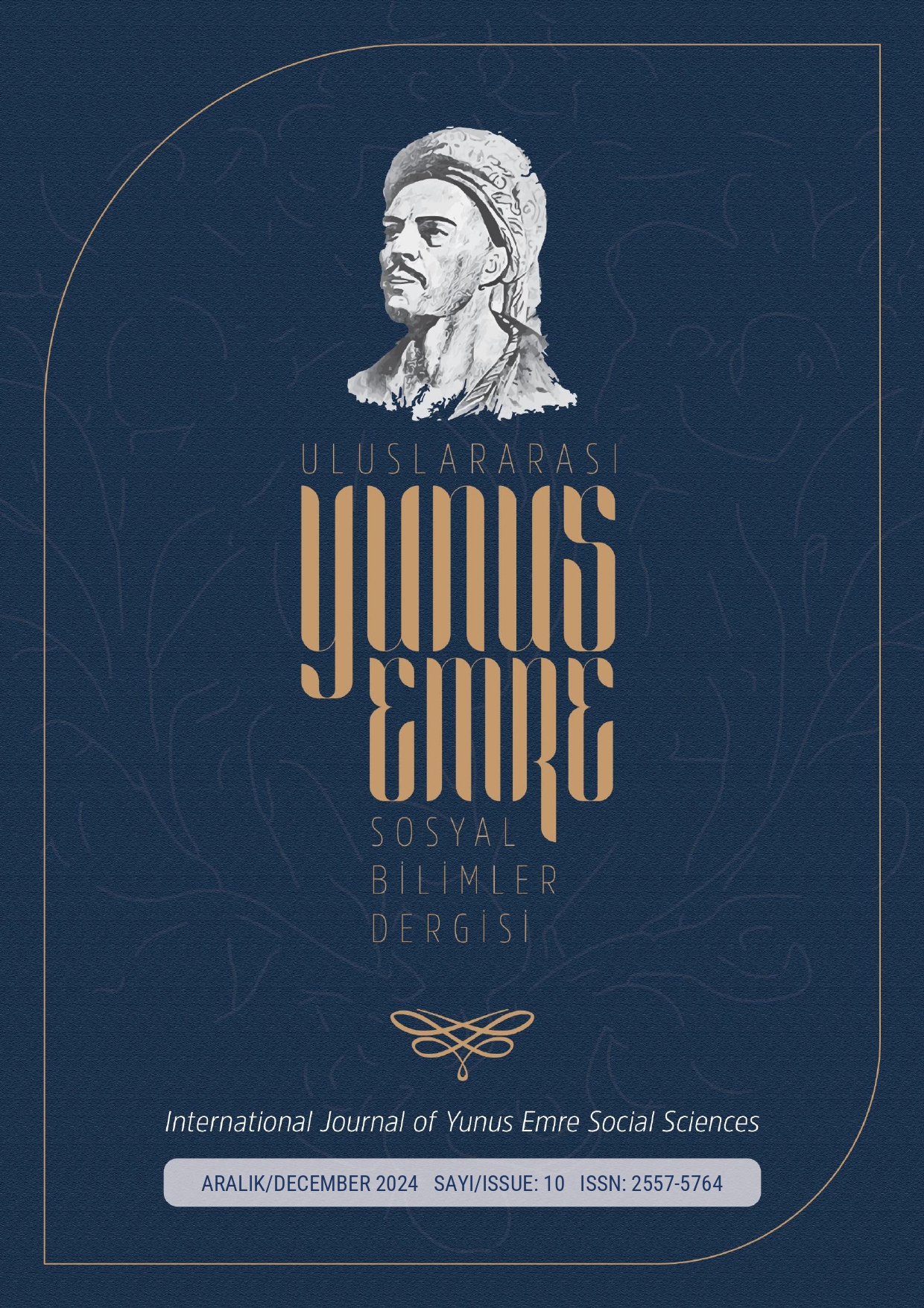CANLANDIRILAN NASRETTİN HOCA FIKRALARININ 5. SINIF ÖĞRENCİLERİNİN DEYİM VE ATASÖZLERİNİ ÖĞRENME BECERİLERİNE ETKİSİ: DENEYSEL BİR ÇALIŞMA.
Author :
Abstract
Bu araştırmada, canlandırılan Nasrettin Hoca fıkralarının 5.sınıf öğrencilerinin deyim ve atasözlerini öğrenmelerine etkisinin ortaya konması amaçlanmıştır. Araştırmaya Antalya/Manavgat’ta bir devlet okulunda 5.sınıfta eğitim-öğretime devam eden 44 öğrenci, gönüllü katılmış; 22 öğrenci kontrol, 22 öğrenci deney grubunu oluşturmuştur. Kontrol ve deney grupları oluşturulurken 4.sınıf mezuniyet ortalamaları ile 5.sınıf not ortalamalarına bakılmış ayrıca Türkçe öğretmenlerinin görüşlerine başvurulmuştur. Seviyeleri birbirine yakın öğrencilerin olduğu sınıflar, kontrol ve deney grupları olarak seçilmiştir. 3 aşamalı çalışmanın I. aşamasında kontrol ve deney gruplarına ön test uygulanmış, II. aşamasında deney grubunda canlandırılan Nasrettin Hoca fıkralarıyla deyim ve atasözleri kazandırılmaya çalışılırken kontrol grubunda ise deyim ve atasözleri geleneksel öğretim yöntemiyle anlatılmıştır. III. aşamasında çalışmanın sonunda kontrol ve deney gruplarına son test uygulanmıştır. Çalışma, sınıf ortamında 10 hafta sürmüştür.
Ön-son test verilerinin elde edilmesinde uzman heyetinin görüşleri doğrultusunda hazırlanan, 10 sorudan oluşan çoktan seçmeli test kullanılmıştır. Veriler, bağımlı ve bağımsız gruplar t testleriyle analiz edilmiş; analiz sonucunda kontrol grubu ön-son test sonuçları arasında istatiksel olarak anlamlı bir fark oluşmadığı, deney grubu ön-son test sonuçları arasında ise istatiksel olarak anlamlı bir fark oluştuğu görülmüştür. Bu bağlamda, canlandırılan Nasrettin Hoca fıkralarının 5. sınıf öğrencilerinin deyim ve atasözlerini öğrenmelerine olumlu etkisinin olduğu söylenebilir.
Keywords
Abstract
This research aims to reveal the effect of animated Nasreddin Hodja jokes on 5th grade students' learning of idioms and proverbs. 44 students studying in the 5th grade at a public school in Antalya/Manavgat participated in the research voluntarily; 22 students constituted the control group and 22 students constituted the experimental group. While creating the control and experimental groups, 4th grade graduation averages and 5th grade grade averages were taken into consideration, and the opinions of Turkish teachers were consulted. Classes with students whose levels were close to each other were selected as control and experimental groups. In the first phase of the 3-stage study, a pre-test was applied to the control and experimental groups, In the second stage, idioms and proverbs were taught in the experimental group through animated Nasrettin Hodja jokes, while in the control group, idioms and proverbs were explained with the traditional teaching method. In the 3rd stage, a post-test was applied to the control and experimental groups at the end of the study. The study lasted 10 weeks in a classroom environment.
A multiple choice test consisting of 10 questions, prepared in line with the opinions of the expert panel, was used to obtain pre-post test data. Data were analyzed with dependent and independent groups t tests; as a result of the analysis, it was seen that there was no statistically significant difference between the pre-post test results of the control group, but a statistically significant difference occurred between the pre-post test results of the experimental group. In this context, it can be said that the animated Nasreddin Hodja jokes have a positive effect on 5th grade students' learning of idioms and proverbs.





